
APPEAL AGAINST VIOLENCE AND XENOPHOBIA
27/10/2025
PROTEST IN PODGORICA TURNED VIOLENT DUE TO HATE SPEECH
28/10/2025The draft Policy of Remembrance was presented; Minister Vujović announced a memorial plaque for the victims of the crime in Kaluđerski Laz
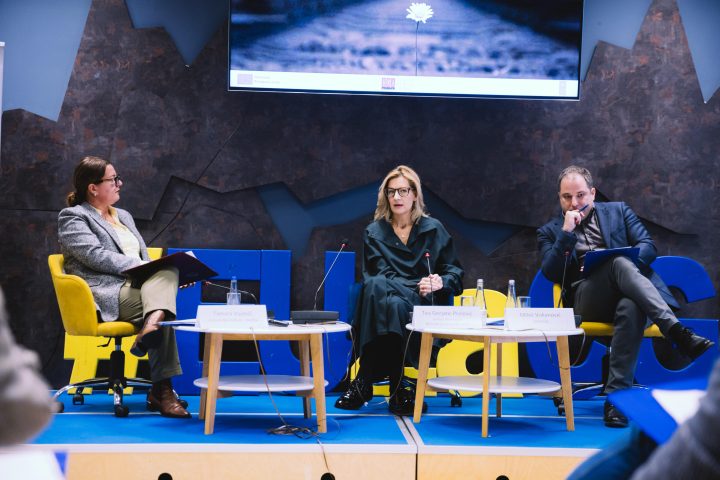
Places in Montenegro where war crimes occurred should be marked, and due respect should be paid to the victims, it was stated at the conference “Policy of Remembrance: Memorialization of War Crimes as the Foundation of a Shared Future”, organized by the NGO Human Rights Action (HRA).
“It is about the need for Montenegro to adopt a policy of remembrance — to accept the facts about war crimes and the victims of those crimes that occurred in the 1990s on the territory of Montenegro and more broadly across the former Yugoslavia, and to ensure that these facts are remembered”, said HRA Executive Director Tea Gorjanc-Prelević, adding that the adoption of such a policy is “a moral and legal obligation”.
Therefore, HRA presented a draft of the Policy of Remembrance with a plan for the institutionalization of remembrance and memorialization, which should include:
“Marking sites of civilian suffering during the wars of the 1990s on the territory of Montenegro, in accordance with historical facts; establishing official remembrance dates and commemoration programs; creating museums, memorial centers, or additions to existing museum exhibits; opening archives; and developing educational and cultural programs dedicated to raising awareness of war crimes, their causes, and what must be kept in mind to prevent their recurrence.”
Minister of Culture and Media Tamara Vujović generally agreed with the presented draft document but offered certain suggestions.
“At the center of this process must be the victim, not politics — no interests, no ideology. If we set two constants — respect for the victims and unwavering faith in truth and evidence — we can speak of a culture of remembrance that does not divide but heals. Therefore, I would in principle support this document as a starting point for thorough work, for confronting arguments, and for a debate that would truly have broad participation and lead to wide consensus on these issues.”
Gorjanc-Prelević, on the other hand, expressed discouragement over the minister’s consideration of opening a long-term dialogue about “facts that should not be in doubt.”
“I think we are at a stage where we could and must move from words to actions — especially regarding the suffering and war crimes of the 1990s connected to Montenegro, where we already have judicially established facts,” stated the HRA Director.
The Authorities of Montenegro and Their Approach to the War Crimes of the 1990s
During the conference, it was noted that the former ruling Democratic Party of Socialists (DPS) “avoided institutional confrontation with war crimes and accountability, since its leaders held key positions of power and responsibility during the wartime 1990s.”
“That is why, instead of a policy of transitional justice, what dominated was a practice of denial, relativization, and selective remembrance. In that period, a practice began of memorializing the participation of JNA (Yugoslav People’s Army) soldiers in aggression against other countries — the former Yugoslav republics — while the demands of the families of war crimes victims for monuments in their memory were completely ignored,” said Gorjanc-Prelević.
Although, she added, there has been some progress since the political changes of 2020, an inconsistent approach to confronting the past has persisted. Historian and author of the Policy of Remembrance draft, Miloš Vukanović, agreed with this assessment.
“We did not have political elites back then — and it seems we still don’t today — who are ready to say: our political fathers of the 1990s were wrong.”
Vukanović also stressed that there must be no compromise when it comes to values in the culture of remembrance.
“It’s an appealing idea — why not come closer through compromise? However, there can be no compromise in the culture of remembrance. There can be no compromise with those who see Mladić and Pavković as heroes.”
Recent events in the Montenegrin capital — specifically, attacks targeting Turkish nationals living in Podgorica — have been linked by Ervina Dabižinović, coordinator of the NGO Center for Women’s and Peace Education, to the war-mongering policies of the 1990s. She therefore insists that it is necessary to confront the past in order to avoid reliving the horrors of that era.
“Confronting a criminal past, achieving transitional justice for victims, and reconciliation — none of this is possible until we, politically, professionally, and morally, take a firm stand behind the fact that we know what happened in the 1990s, and that crimes were committed in our name. It is our obligation to determine what we did to others,” said Dabižinović.
Additionally, Daliborka Uljarević, Executive Director of the NGO Center for Civic Education, expressed concern over how representatives of the current government interpret history.
“At a moment when we have not yet built a culture of remembrance or reached consensus on indisputable facts, we are entering a process of open revisionism — not coming from outside circles, but from within the government itself — and this threatens to undo even the progress that has been made,” she warned.
On the other hand, Minister Tamara Vujović did not agree with their position and stated that the main orientation and commitment of the current Government is “that there is no relativization or revisionism.” She emphasized that Dabižinović’s claims, which directly link the crimes of the 1990s with current events, are dangerous and that this was an isolated incident.
Historian Filip Kuzman meanwhile assessed that many actions taken by both the authorities and the opposition regarding war crimes are motivated merely by the desire to gain political points.
“There are some positive examples, but mostly it’s petty politicking and insincerity,” he said, recalling the adoption of the Resolution on the Genocide in Srebrenica by the Montenegrin Parliament — an initiative proposed by the current opposition, which, when it was in power, had not even considered it.
A Memorial Soon in Kaluđerski Laz — Possibly Also for the Victims of the Deportation in Herceg Novi
The fact that certain Montenegrin officials apologized to neighboring countries for the war crimes of the 1990s was a symbolic step forward, but it was not enough and did not influence state policy, stated Daliborka Uljarević, Director of the Center for Civic Education (CGO).
“It was not followed by what it should have been — effective judicial proceedings, the inclusion of facts about Montenegro’s role in the aggression on Dubrovnik and the events in Bosnia and Herzegovina in school textbooks and education policy. There was no support for building memorials, nor any public acknowledgment and empathy for the victims.”
Historian Marijana Toma believes that memorialization is one of the most important steps on the path toward confronting the past.
“Memorialization is aimed at offering an official and public acknowledgment of what happened in the past. It is a strategy for the state to recognize the suffering of the victims.”
At this moment, Montenegro has only one war victims’ memorial. It is located in Podgorica, in Pobrezje Park, and is dedicated to all those who perished in the wars of the 1990s across the territory of the former Yugoslavia.
Thus, the victims of one of the largest war crimes committed on Montenegrin soil during that period — the killing of ethnic Albanian civilians from Kosovo in Kaluđerski Laz near Rožaje in 1999 — still have no memorial. At that time, members of the Army of the Federal Republic of Yugoslavia killed 21 people and wounded seven.
Hadži Ljajči, a resident of Kaluđerski Laz, spoke at the conference about the significance that erecting a memorial would have for society as a whole.
“A memorial to the victims of the crime would be a kind of signal that not everything is lost, that truth does not die… After 26 years, the memorial would have great importance for remembrance and for educating younger generations,” he said, adding that there still seems to be no genuine determination for that crime to receive a judicial outcome.
Encouraging news was shared at the conference regarding the long-standing initiative to build a memorial in Kaluđerski Laz in memory of the victims. Minister Tamara Vujović announced that the commission reviewing the proposal would respond positively.
“There is no dispute that the victims in Kaluđerski laz were civilians. There was some dilemma because the court proceedings were never completed and also over whether Montenegro was a party to the war… I can now say that this case will be resolved positively. It was not a simple YES or NO decision, which is why the process has taken so long.”
The initiative to erect a memorial in Herceg Novi for the victims of the deportation, however, remains pending. The minister promised that she would personally advocate for its realization.
“I believe there is absolute consensus that this event must be commemorated with a memorial. I have taken it upon myself as an additional responsibility to dedicate attention to this issue and to ensure that the memorial is erected,” said Vujović.
Alen Bajrović, the son of the deported Osman Bajrović, expects that Montenegro will finally act on this issue.
“The monument in Herceg Novi is most needed by the state of Montenegro and its citizens — to show that this is a civilized, not barbaric, society that embraces the values of healthy communities,” said Bajrović, reminding that the entire Montenegrin government of that time — the president, the prime minister, and the ministers — bore responsibility for the crime.
Tea Gorjanc-Prelević, Director of Human Rights Action (HRA), emphasized that in the future, the anniversary of the deportation in the municipality of Herceg Novi should not be organized only by NGOs.
“We insist that the anniversary of the deportation be organized jointly with the state — not only by non-governmental organizations.”
Along with properly marking the crimes and honoring the victims, it is also necessary, she stressed, that schools teach what happened during the wars of the 1990s, especially what was done in the name of Montenegro.
“If something is missing from education, we live in a void and won’t know what we have done to others. What should we do? A public acknowledgment and an apology. Transitional justice also includes memorialization — a public recognition of someone’s suffering and sacrifice. I would like a plaque to be placed on the building of the Security Center in Herceg Novi. Every young person who enters that building should know they must think with their own mind, and at some point be able to say: I will not do this,” said Ervina Dabižinović from ANIMA.
Mirsad Rastoder, from the Bosniak National Council, expressed full support for Human Rights Action and its proposed Policy of Remembrance.
“We support unity on the path toward a serious strategy — to try to reach those decision-makers who promote an entirely different narrative,” he said.
Rastoder reminded that the memorial at Pobrezje dedicated to the civilian victims of the 1990s was built on the initiative of the Bosniak Forum, but their proposal had also included additional plaques describing all the war crimes committed in Montenegro, which were ultimately omitted.
Still, Alen Bajrović pointed out that homage continues to be paid to Pavle Bulatović, who, at the time of the deportation of Muslims and Bosniaks, served as Montenegro’s Minister of the Interior.
“I must emphasize that a street in Pljevlja still bears Pavle Bulatović’s name. That is deeply distressing to me. I appeal for the street named after a war criminal — a Montenegrin minister and direct order-giver — to be renamed,” Bajrović urged the Minister of Culture and Media.
The minister replied that she was not aware of the existence of such a street in the municipality of Pljevlja but that inspectors from her ministry would look into the matter.
Investigate Crimes Committed Before the 1990s as Well
Civil activist Aleksandar Zeković believes that society should not stop at paying tribute only to those who perished during the wars in the territory of the former Yugoslavia. He emphasizes that all victims must be treated equally.
“I’m not speaking only about the victims of the Informbiro period in 1948. We don’t even remember the innocent civilian victims of 1918, during the conflicts in Montenegro, nor those from after World War II, in the period from 1941 to 1945. For almost a decade we’ve remained silent about the fact that these people don’t even have the right to a grave… One of the greatest crimes took place in Bar, where several young Albanian and Bosniak men were killed — and there is no memorial whatsoever,” said Zeković.
Minister Tamara Vujović stated that it is important to talk about “that painful period of our history” as well.
“If we have suppressed that topic and those victims for 60–70 years, that is a grave injustice. That is the next major issue we need to talk about” she said. She emphasized that Montenegro is obliged to respect the Council of Europe’s resolutions condemning totalitarian regimes, including communism. “I believe that addressing this issue would contribute to shaping the policy of remembrance in an appropriate way.”
Historian Miloš Vukanović, however, believes that no political party has the right to reopen issues related to World War II or the post-1918 period while the victims of the 1990s wars remain neglected.
“Let’s first shed light on the 1990s — that way we’ll help society mature enough to deal with all crimes,” he said.
The conference “Policy of Remembrance: Memorialization of War Crimes as the Foundation of a Shared Future” was organized as part of the project “Together towards justice: Legal, Psychological and Social Support for Victims of War Crimes”, implemented by Human Rights Action (HRA) with the support of the European Union through the regional project “EU Support to Confidence Building in the Western Balkans”, implemented by the United Nations Development Programme (UNDP).
Photographer: Filip Roganović



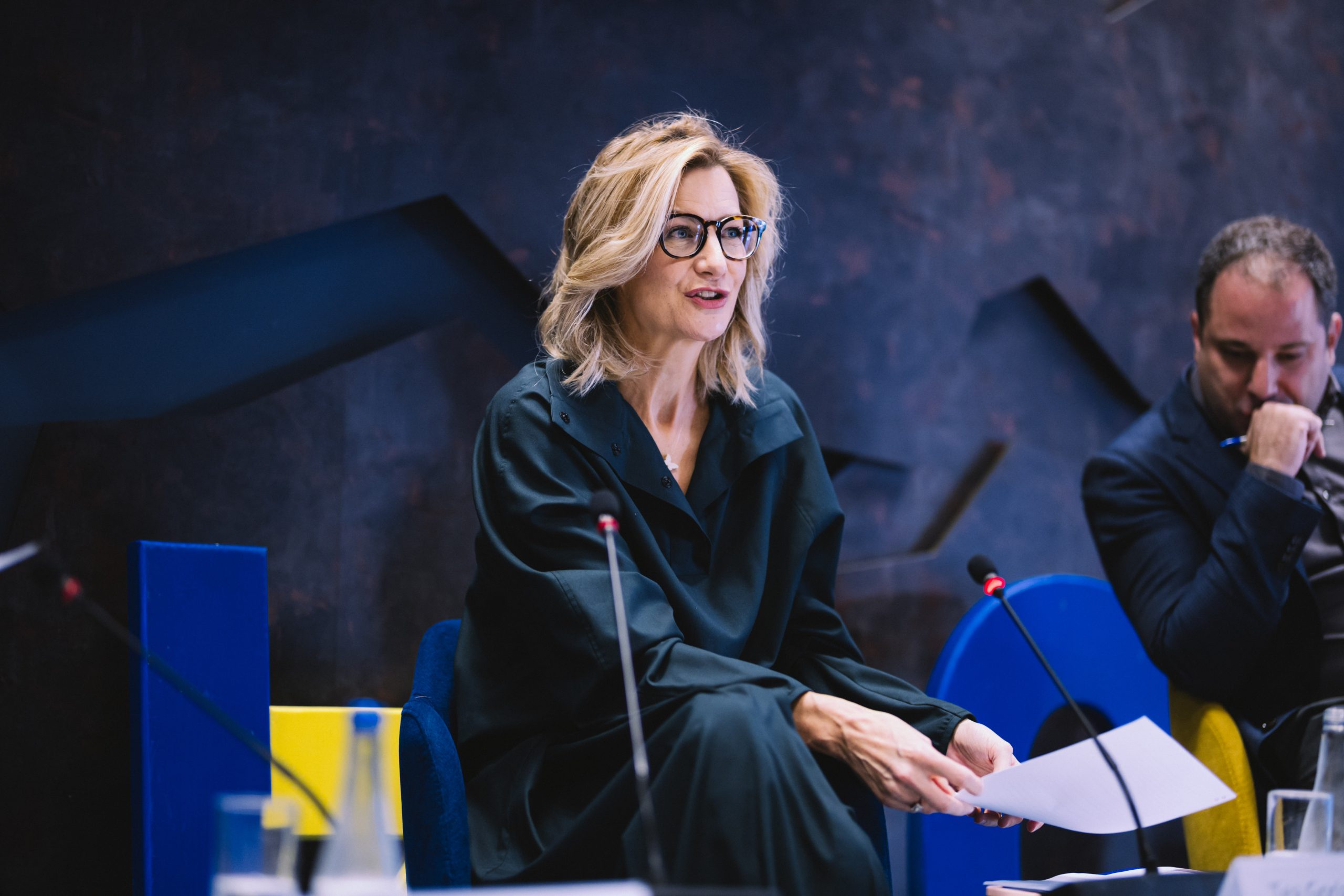
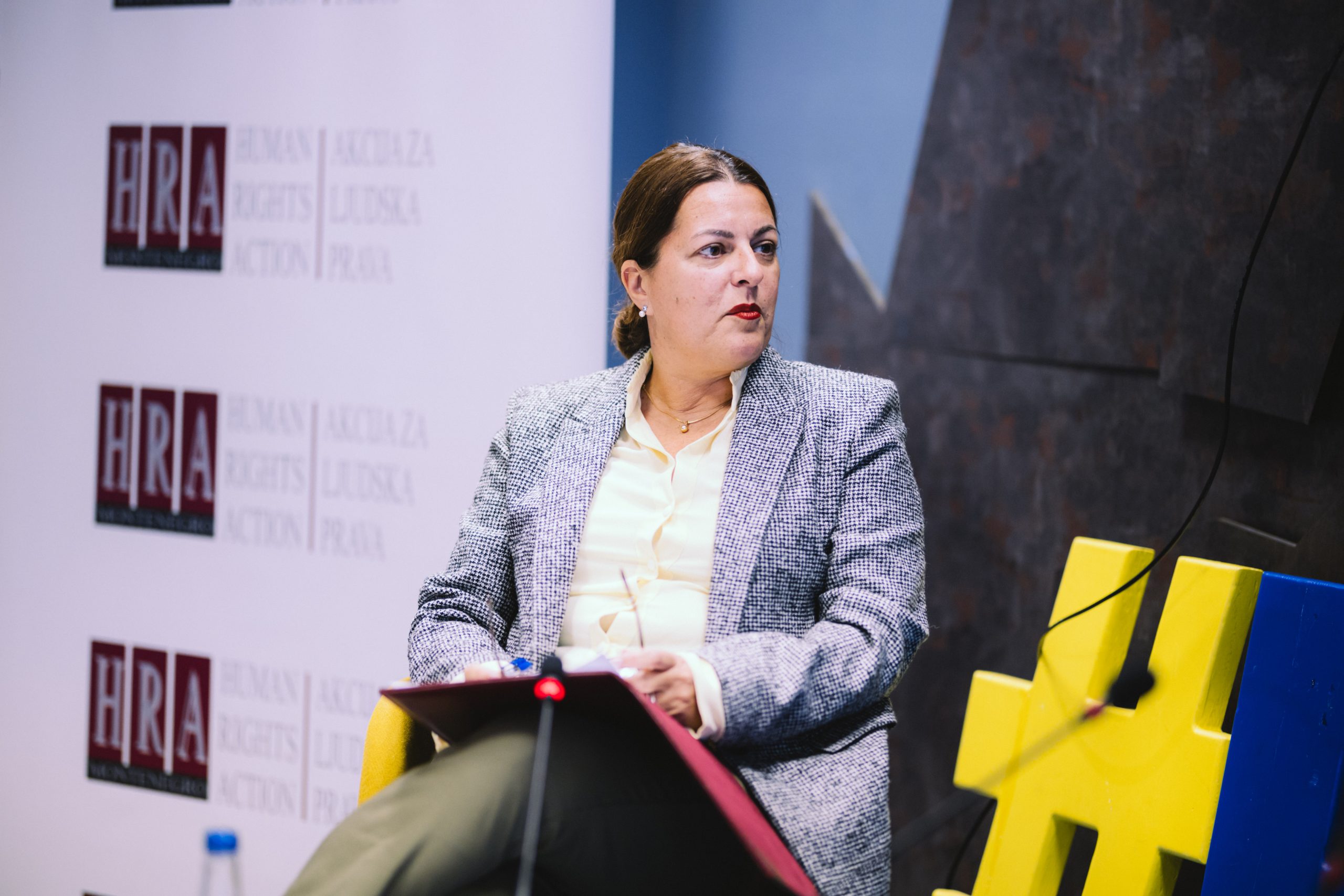
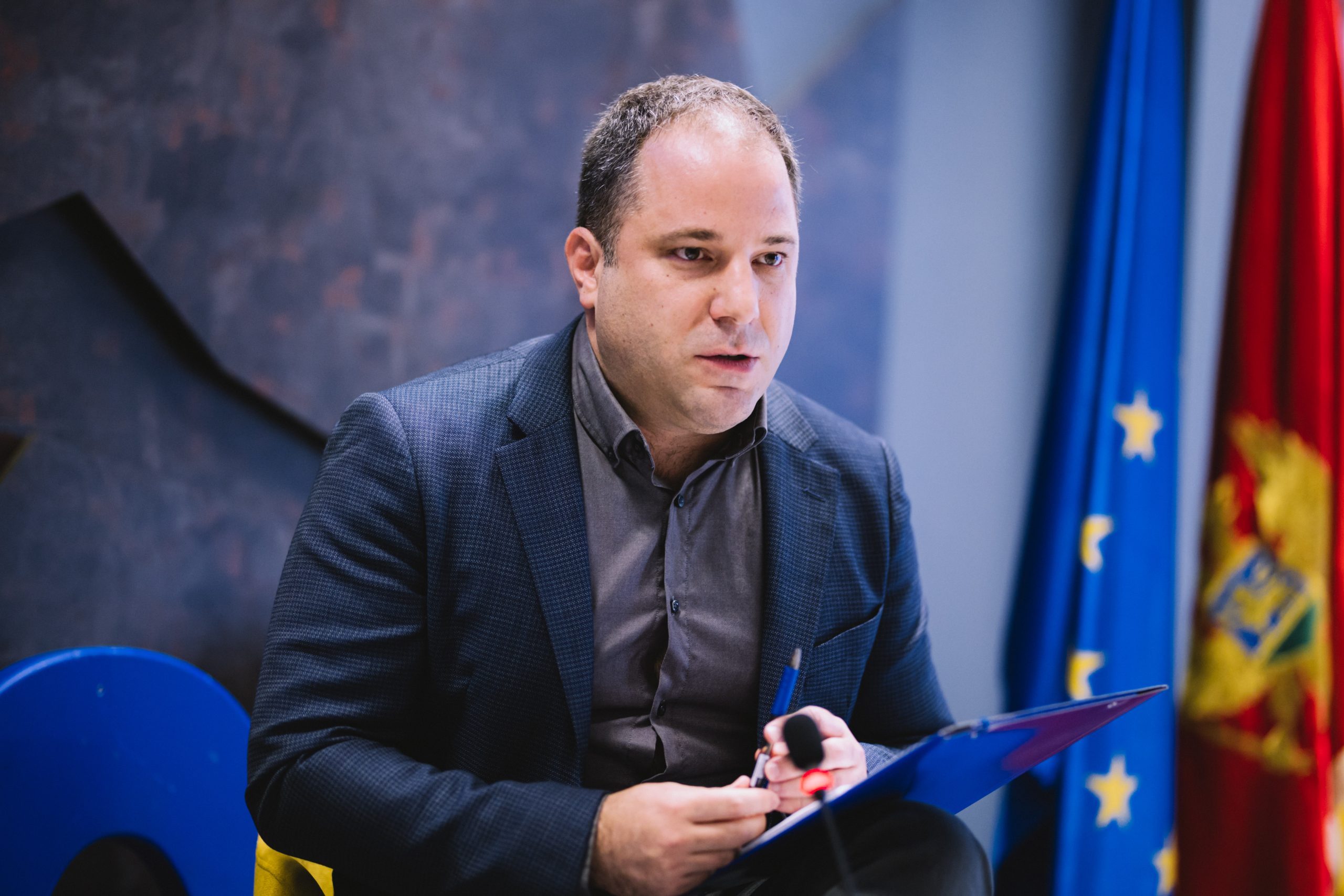
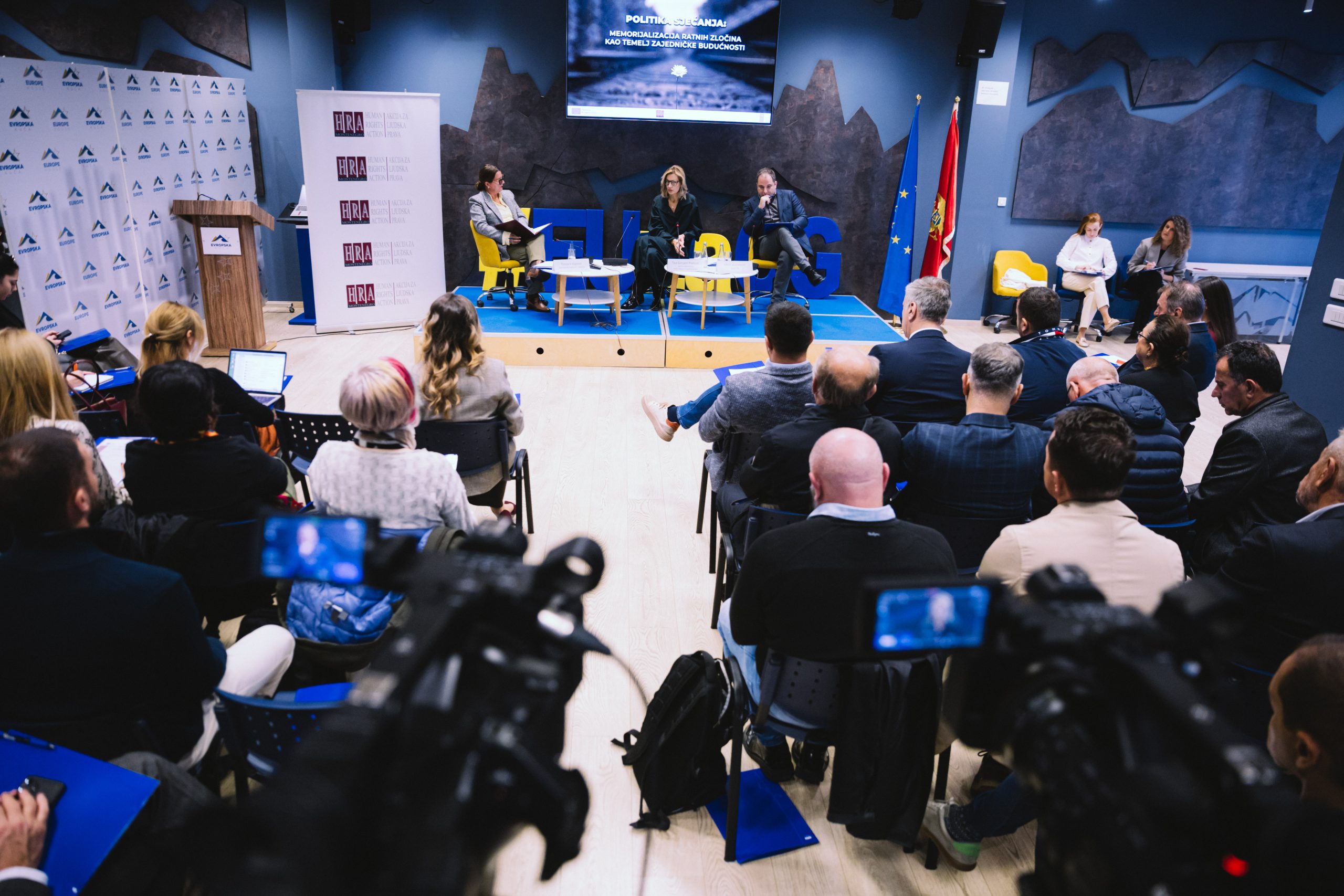

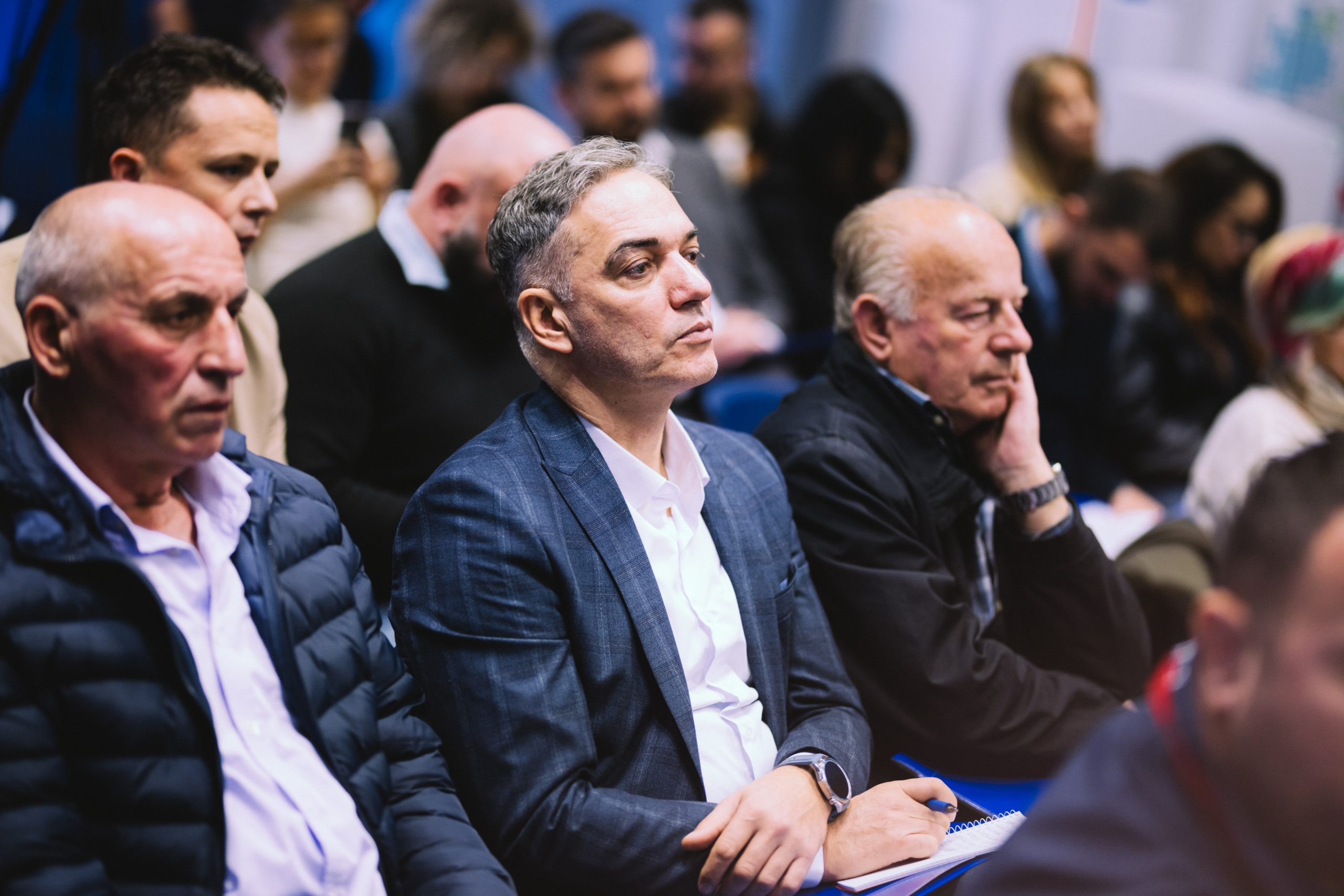
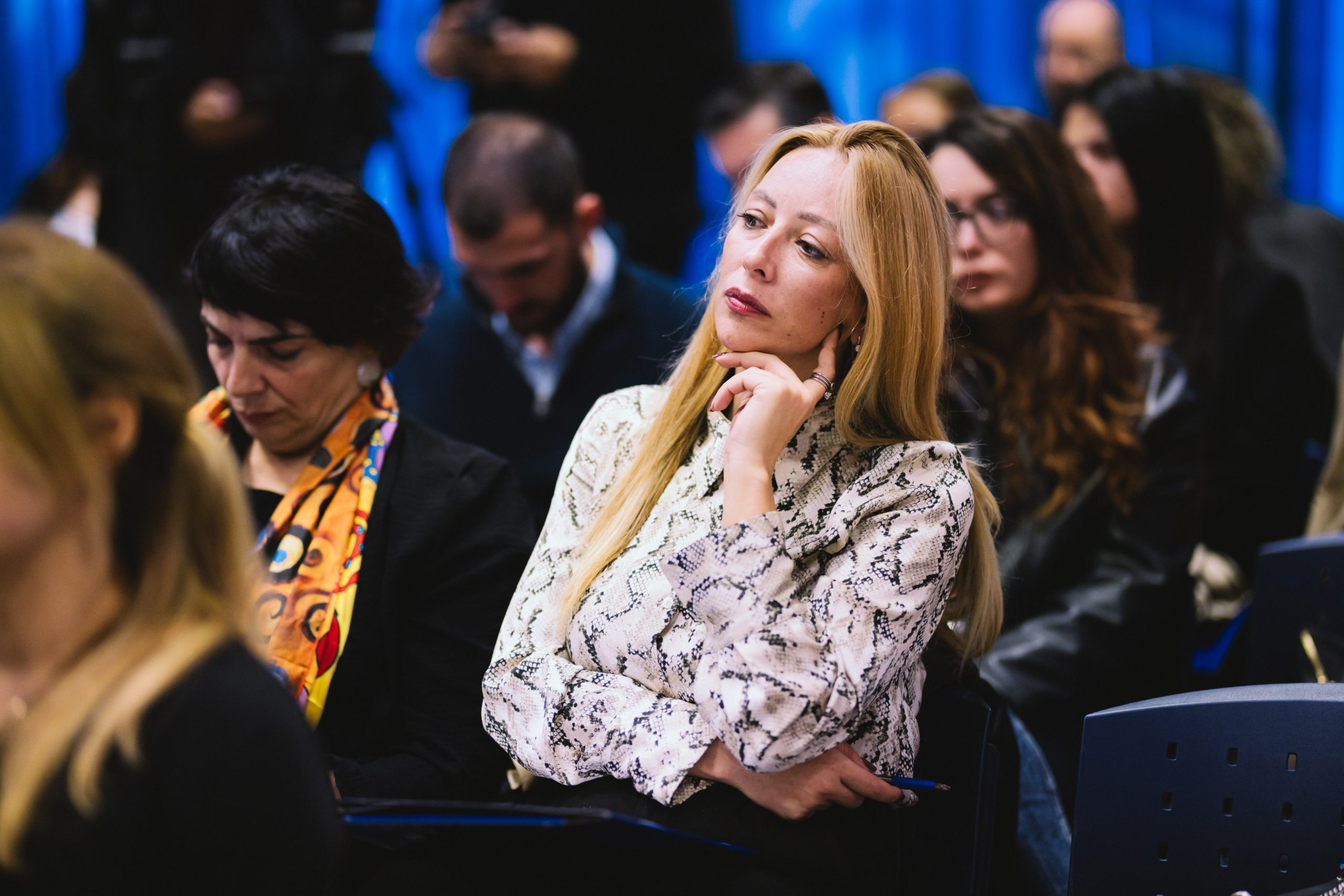

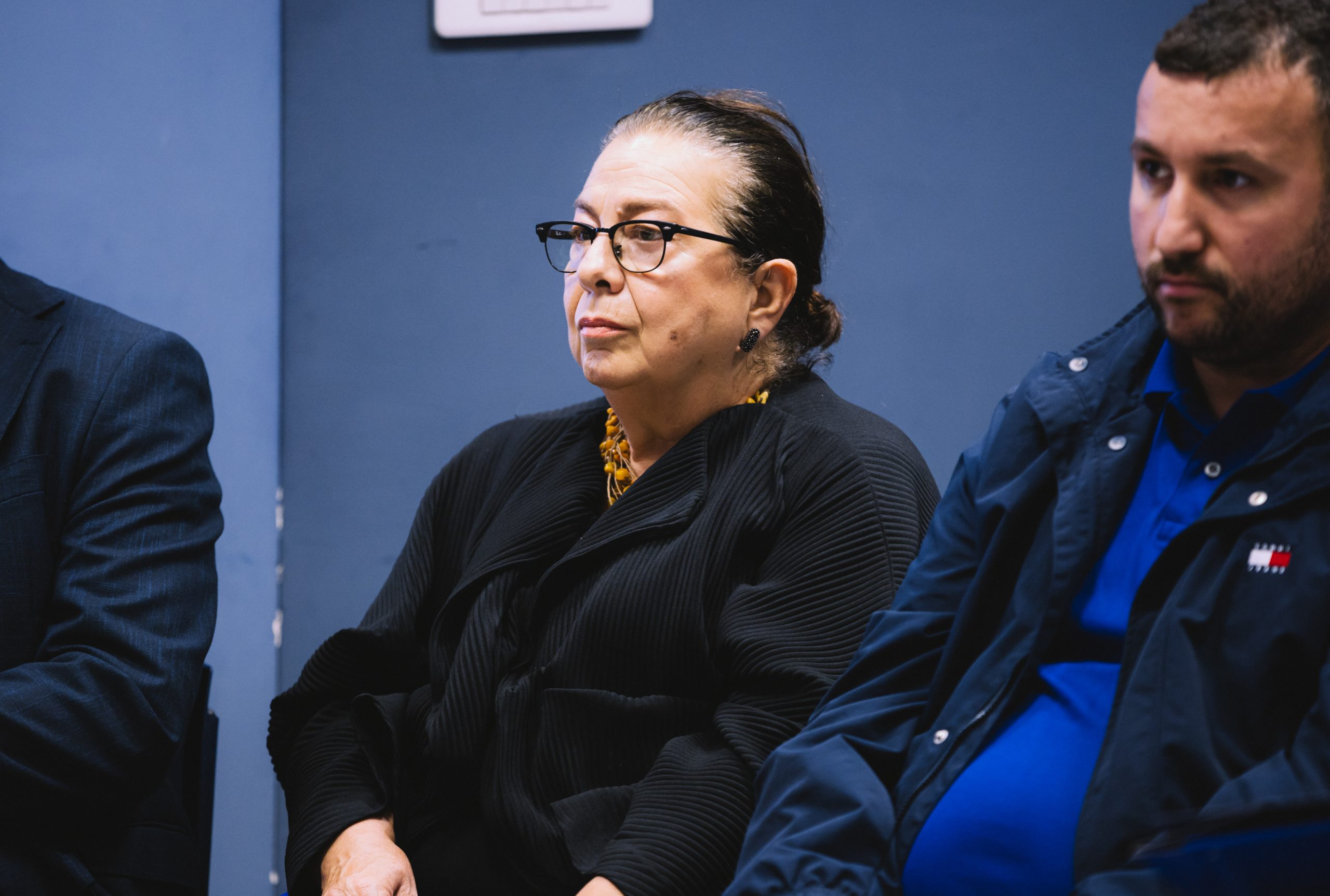
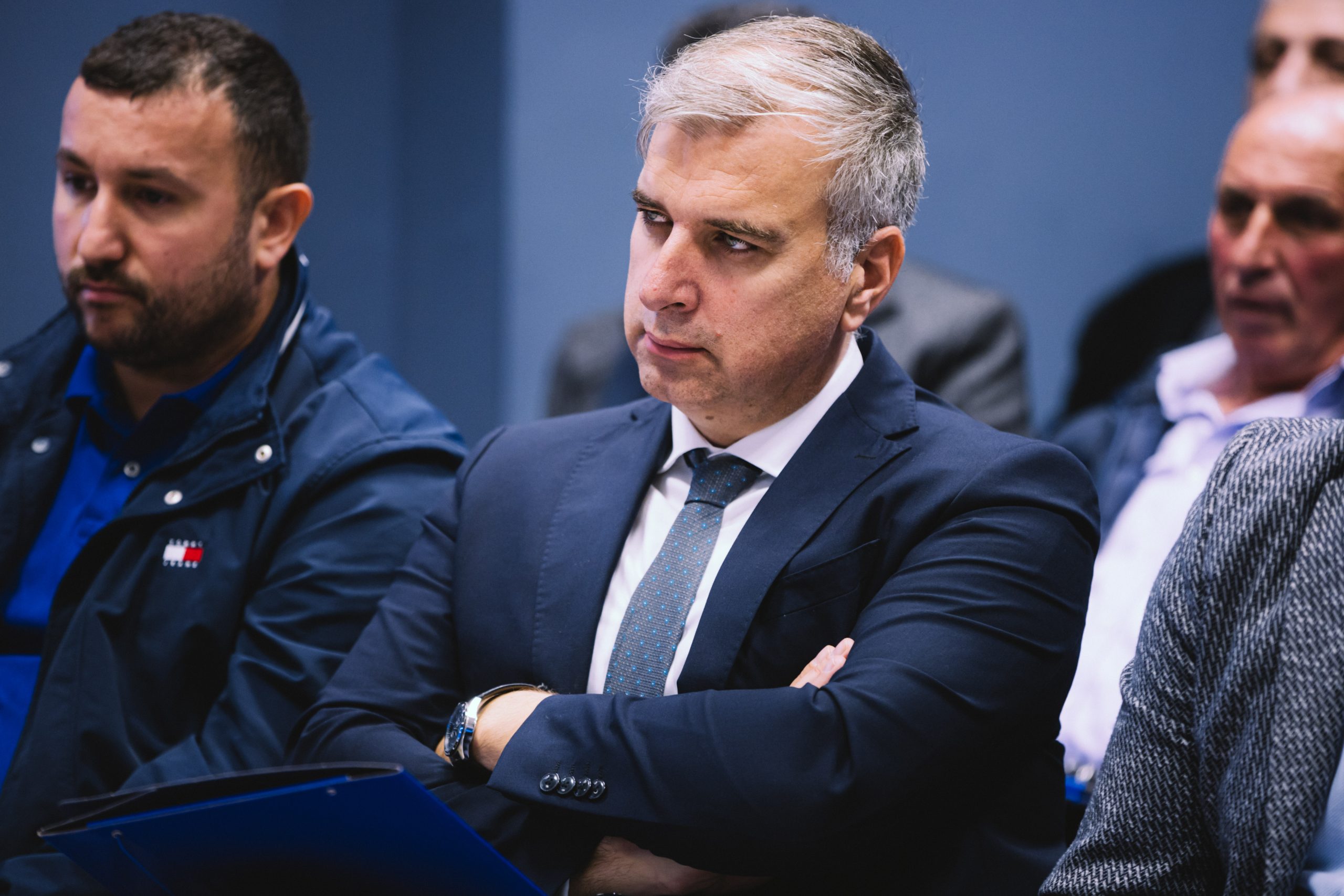
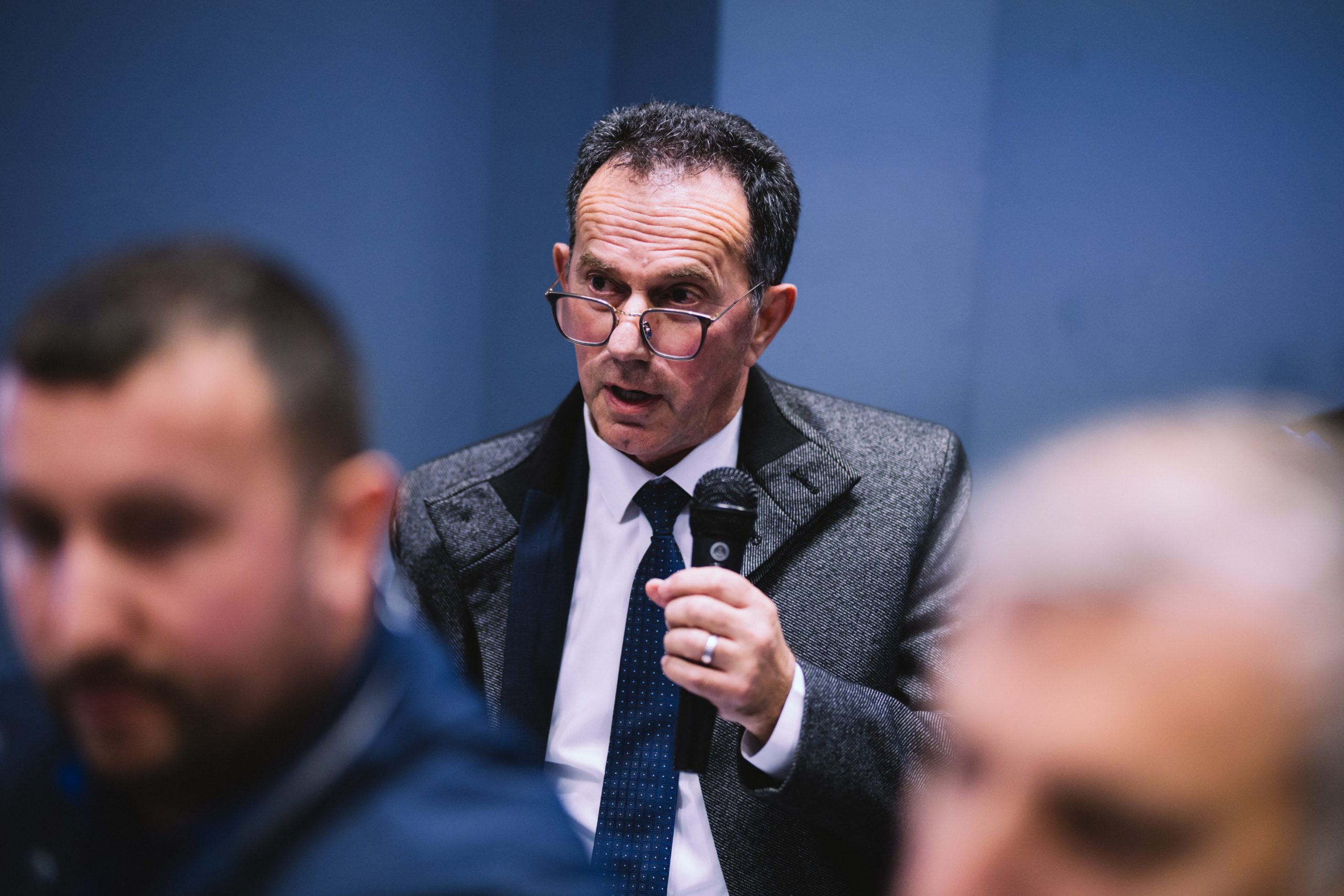
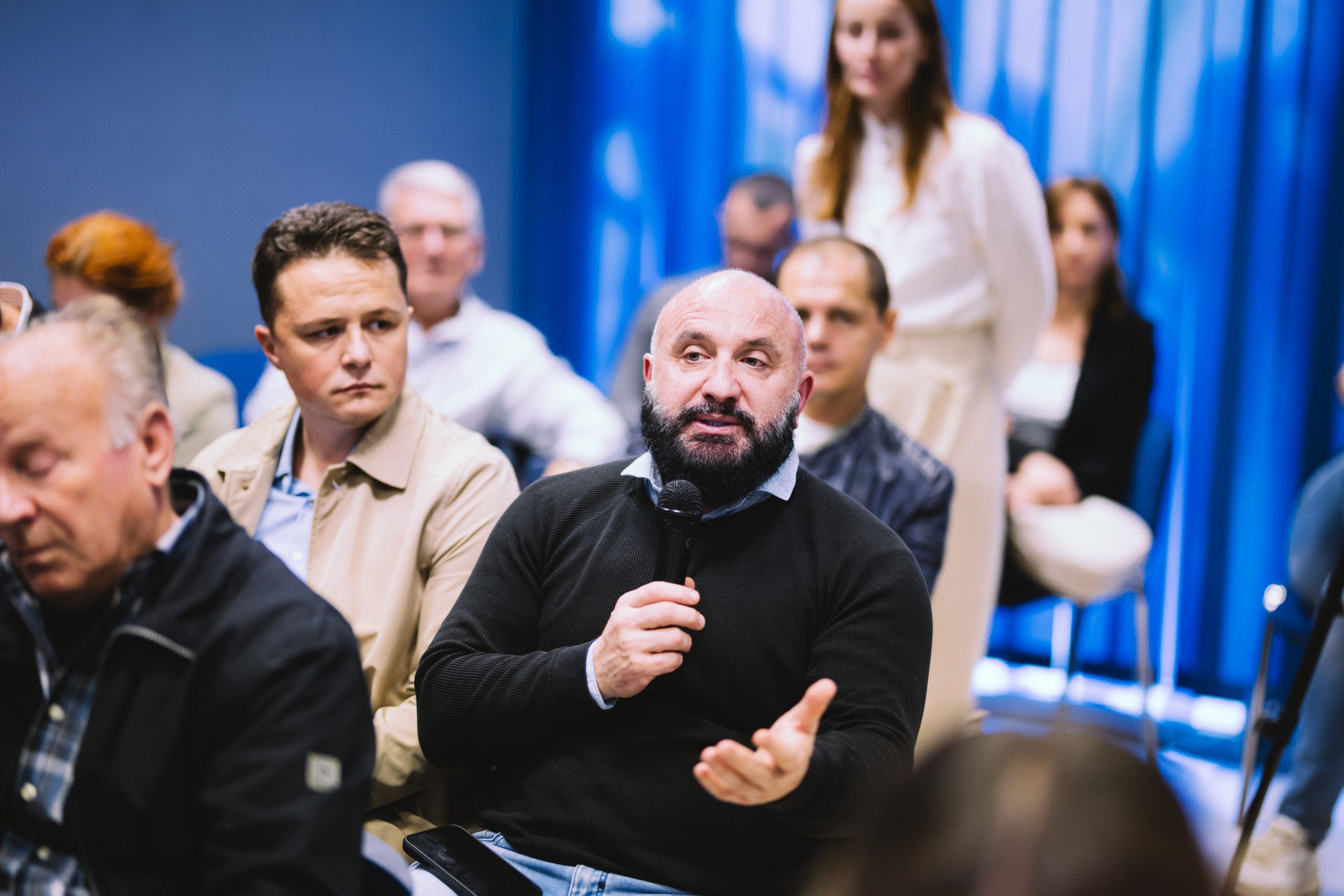
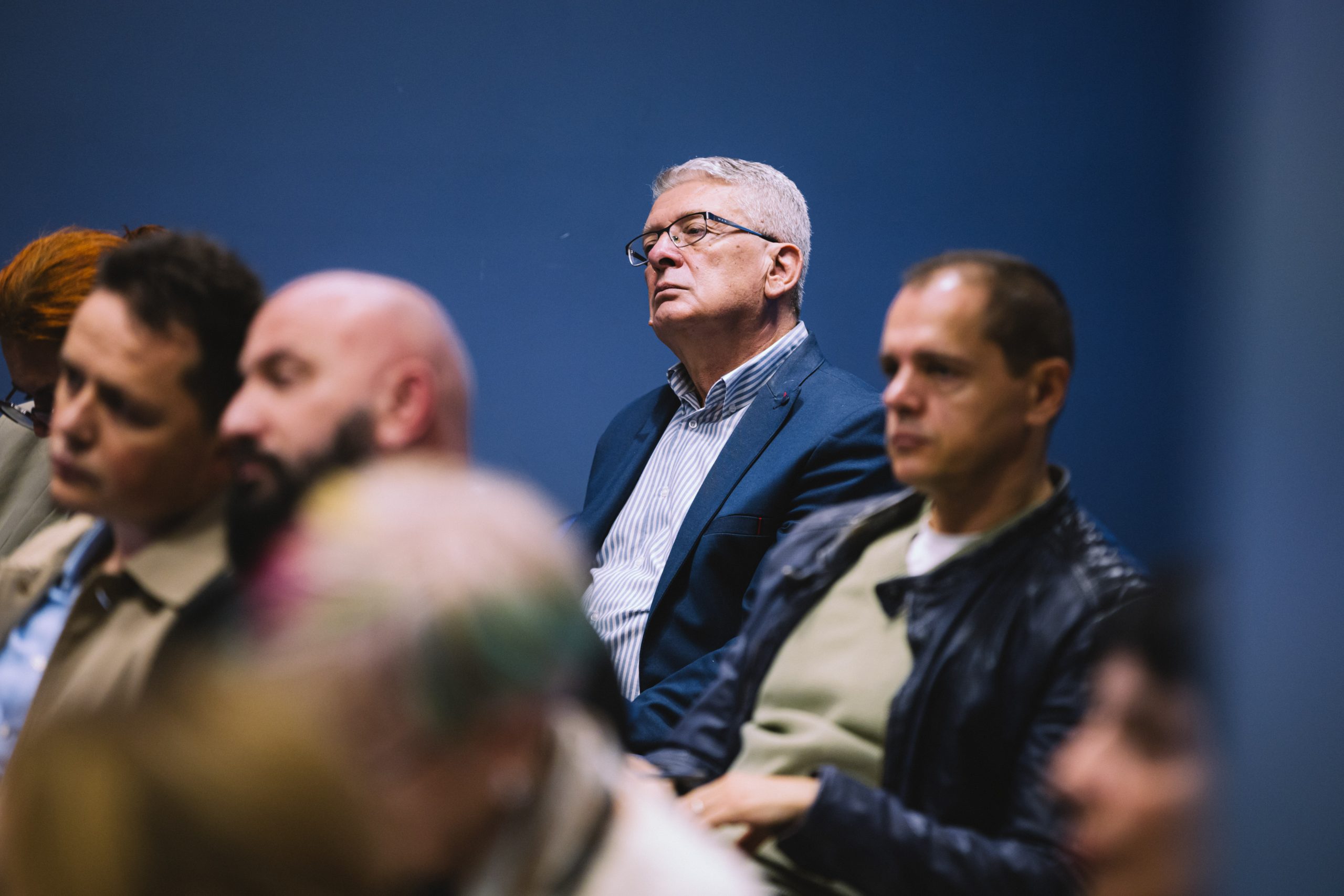
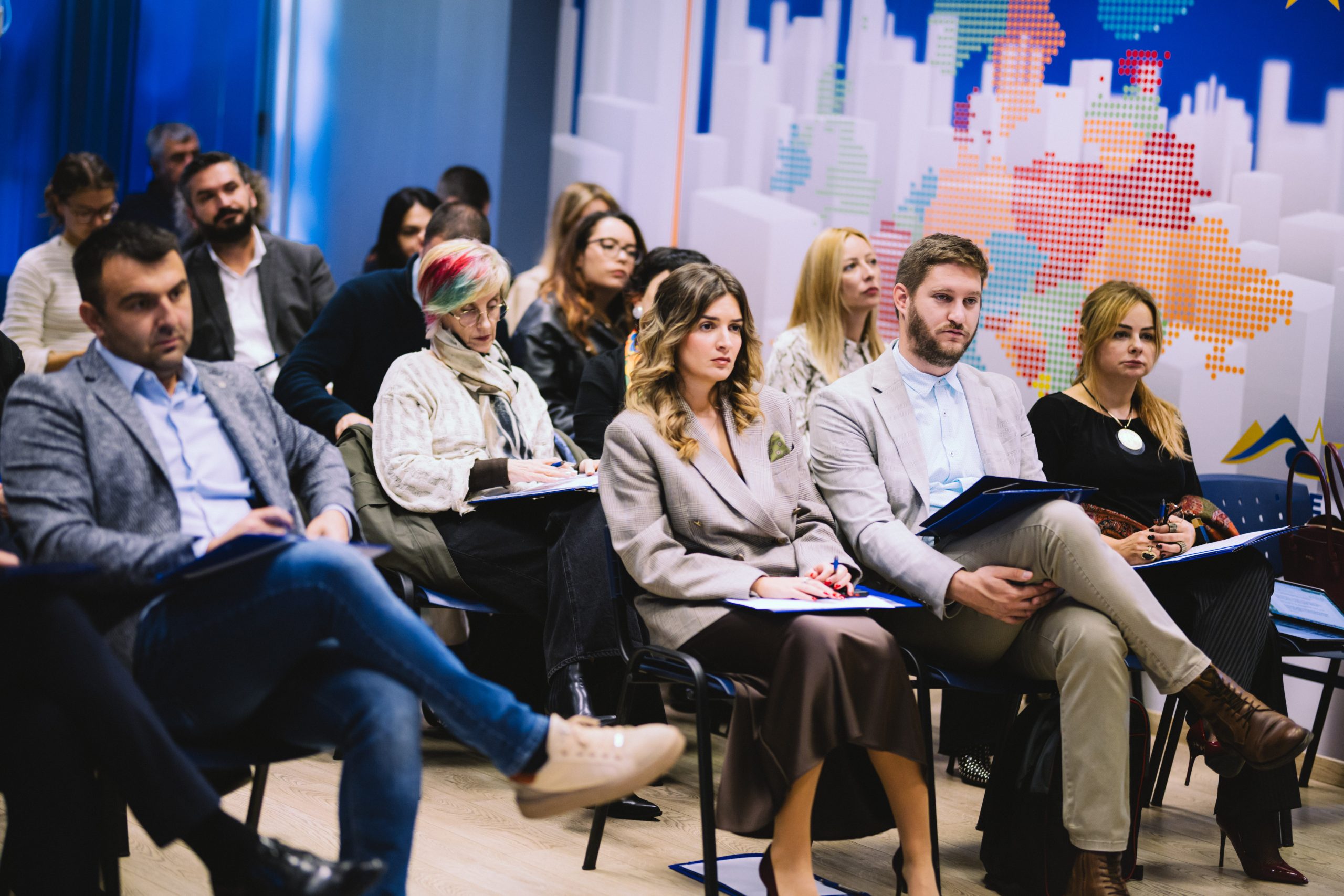

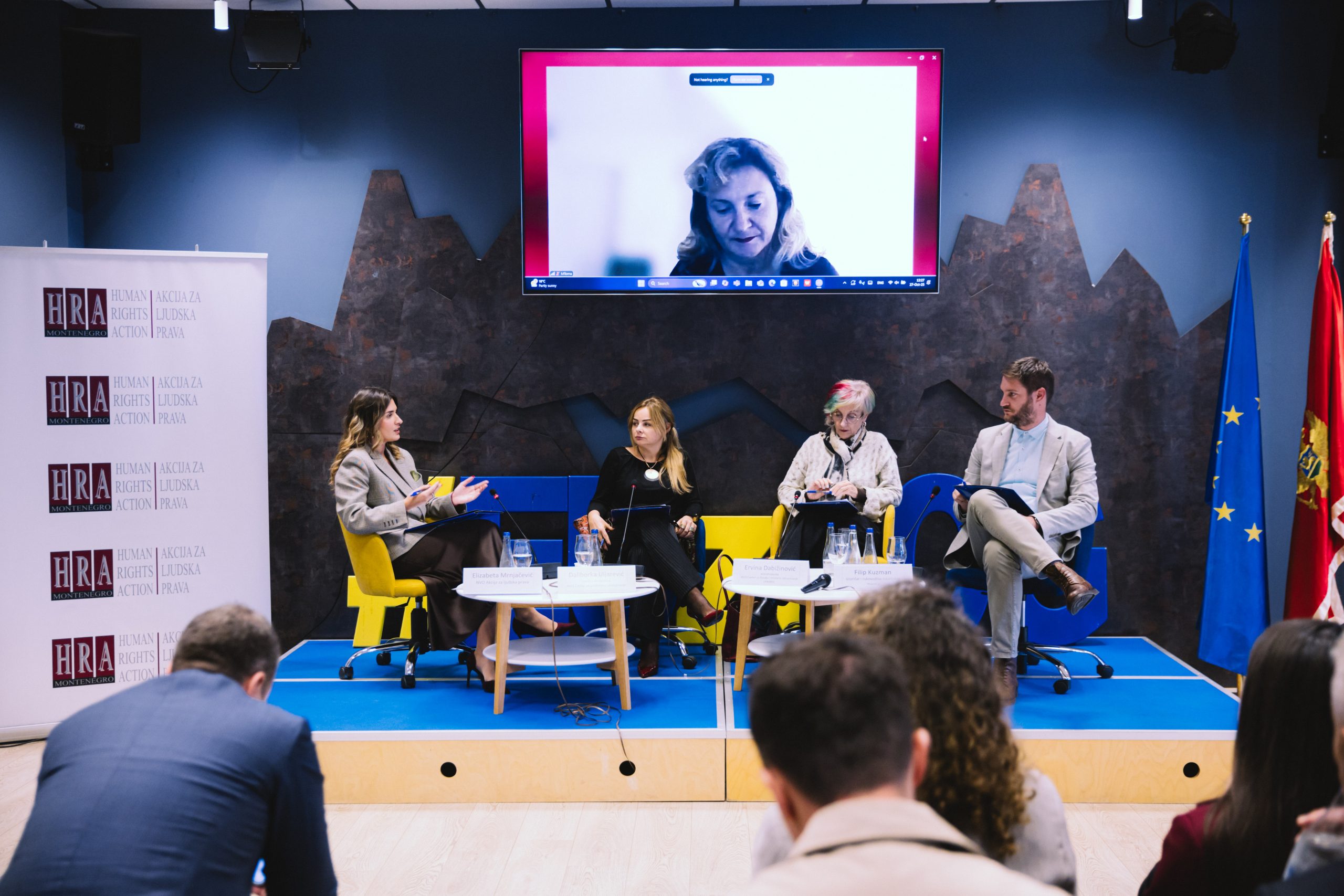
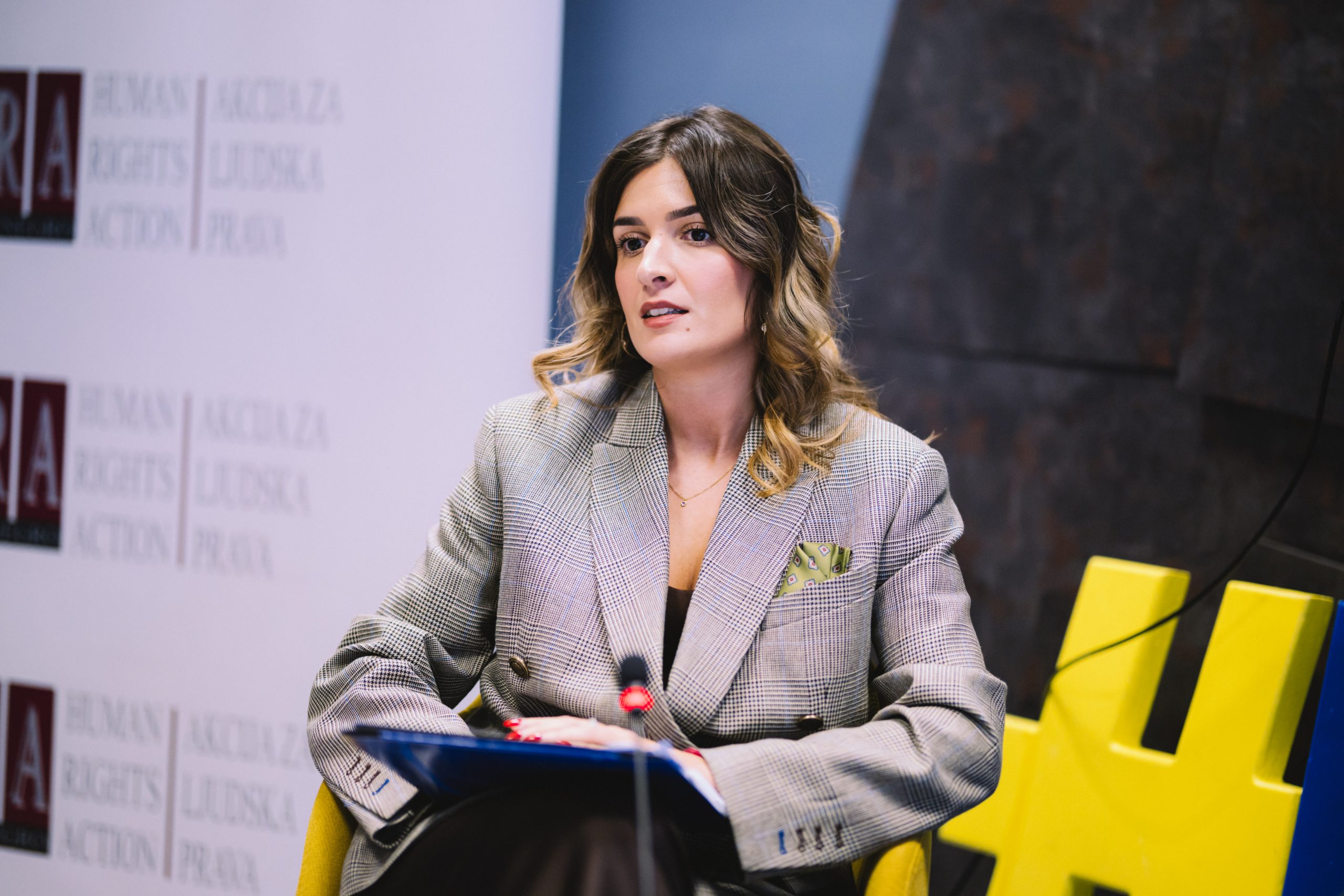
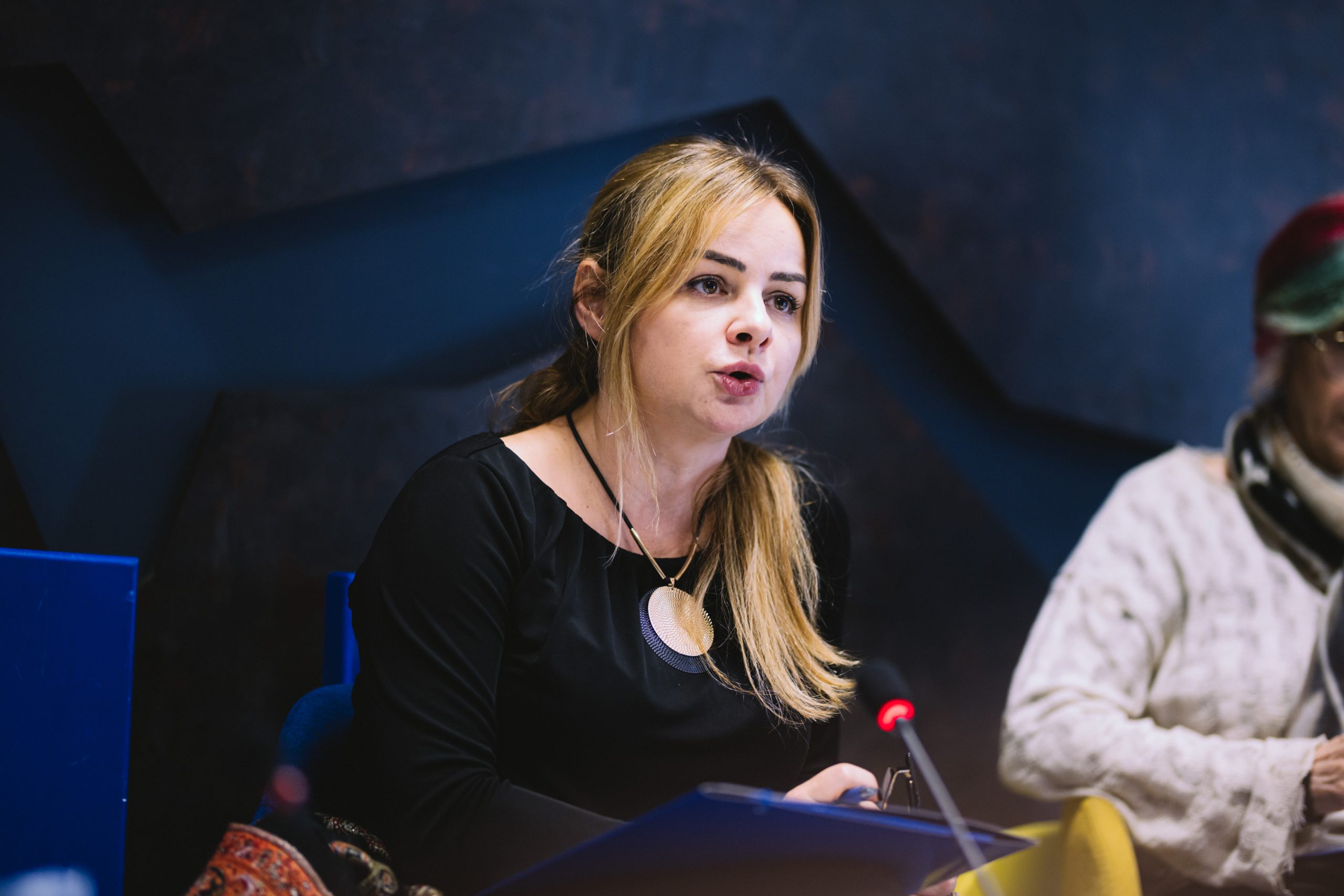
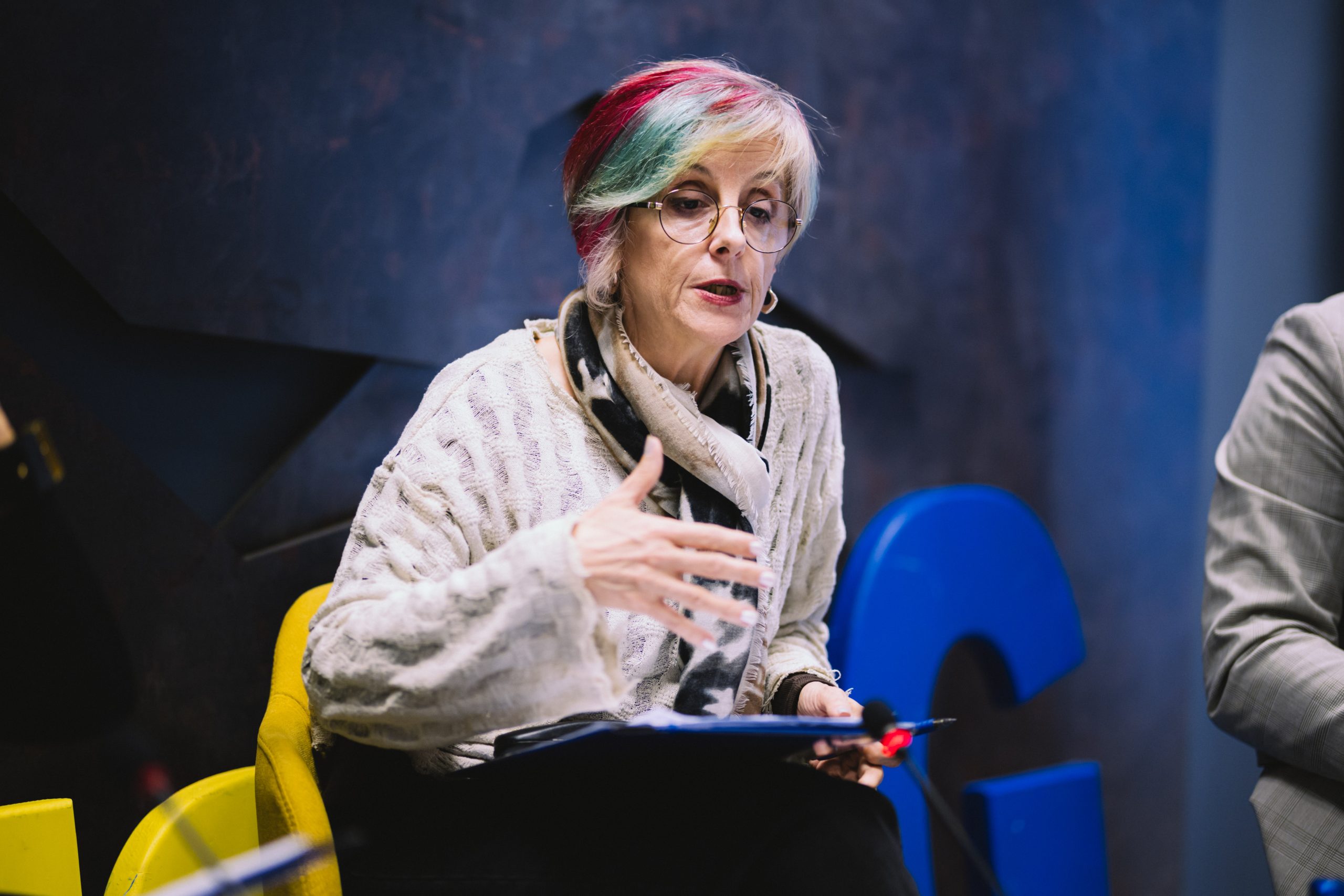
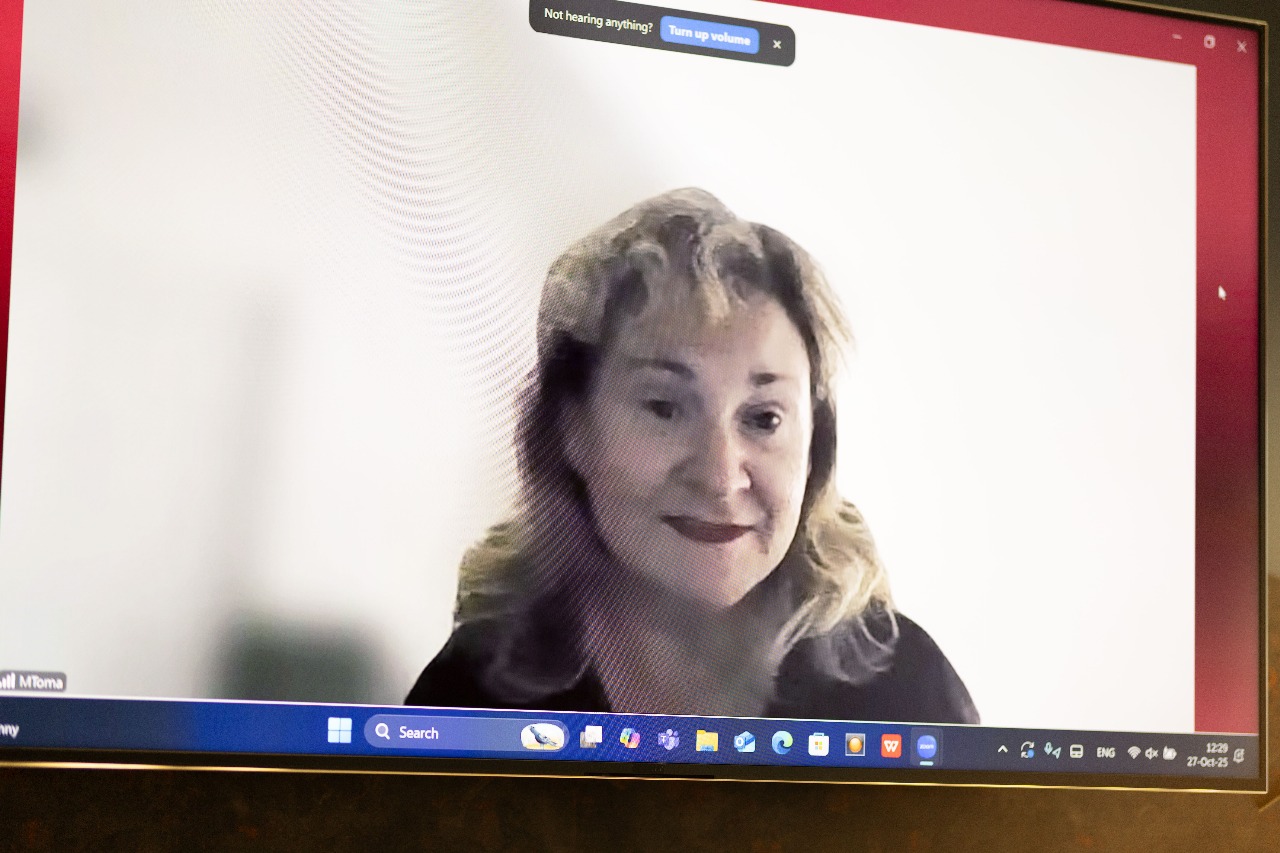
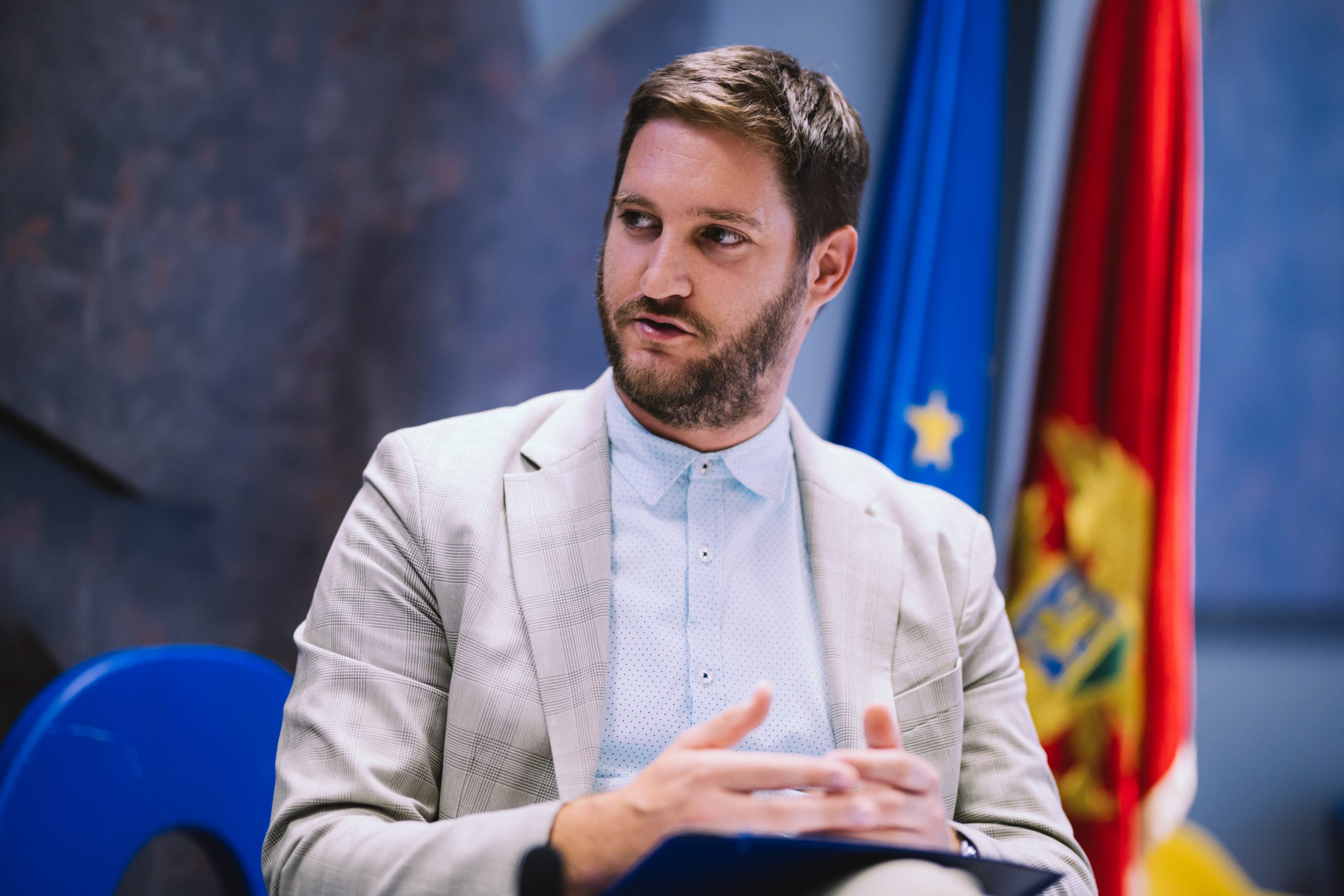
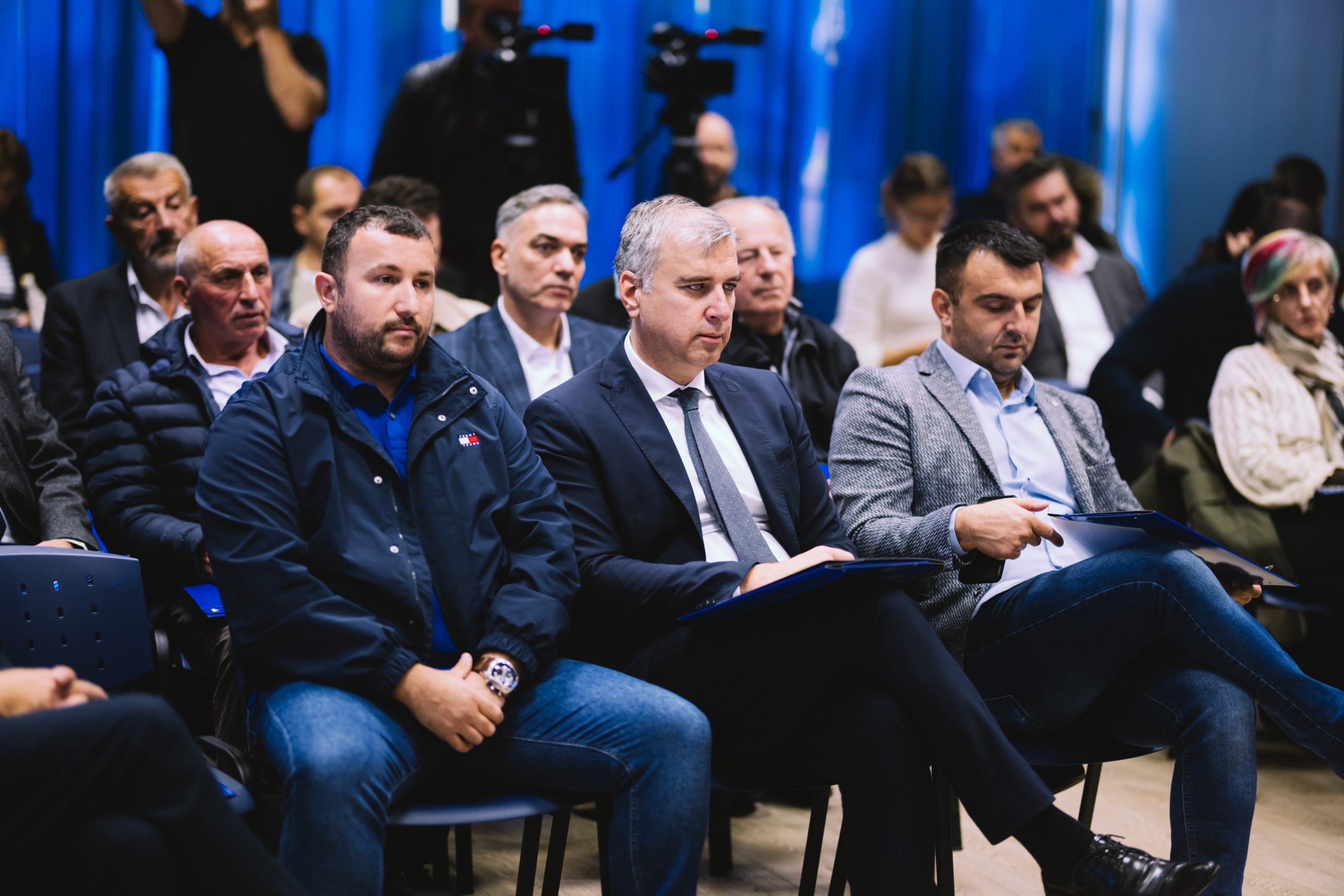
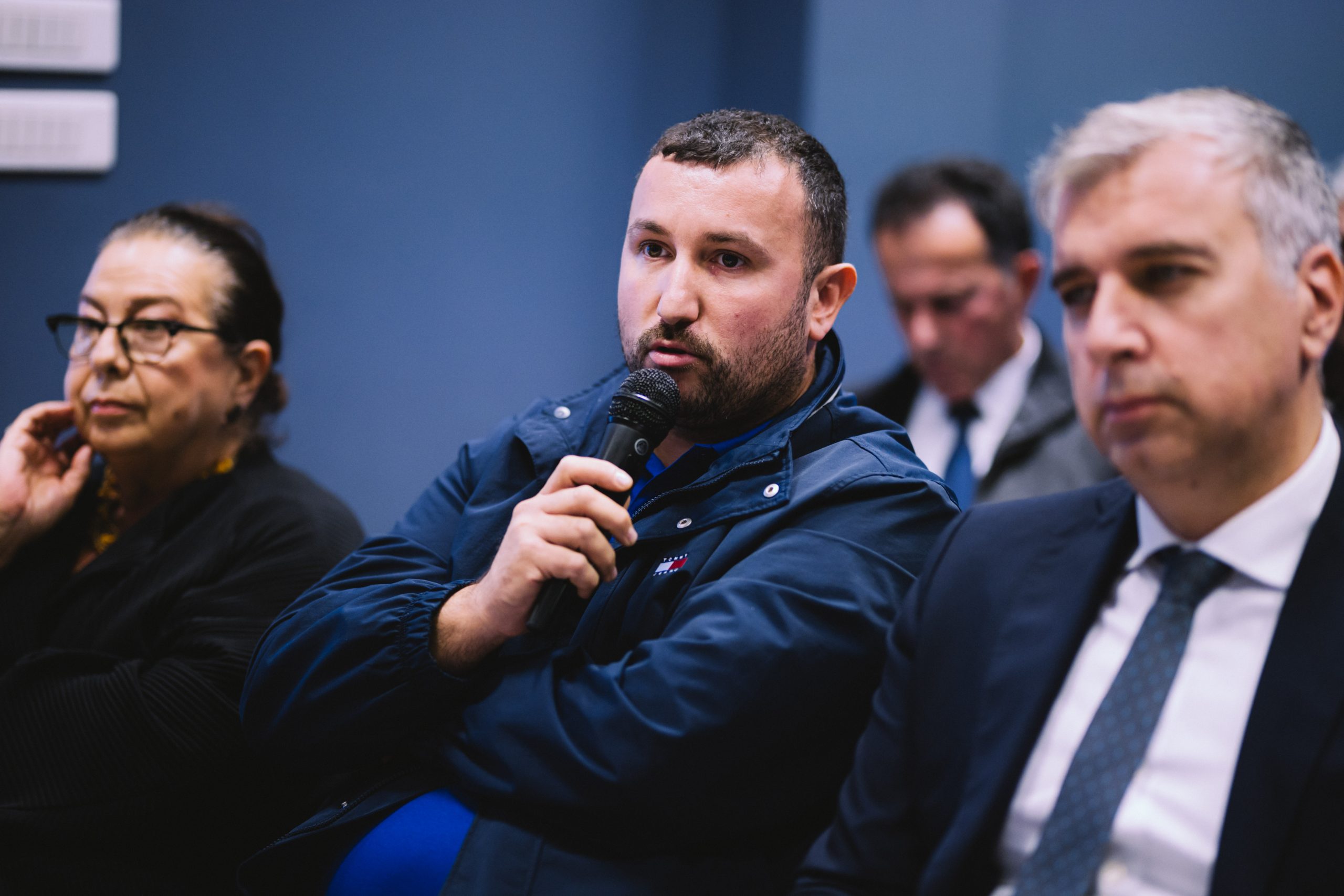
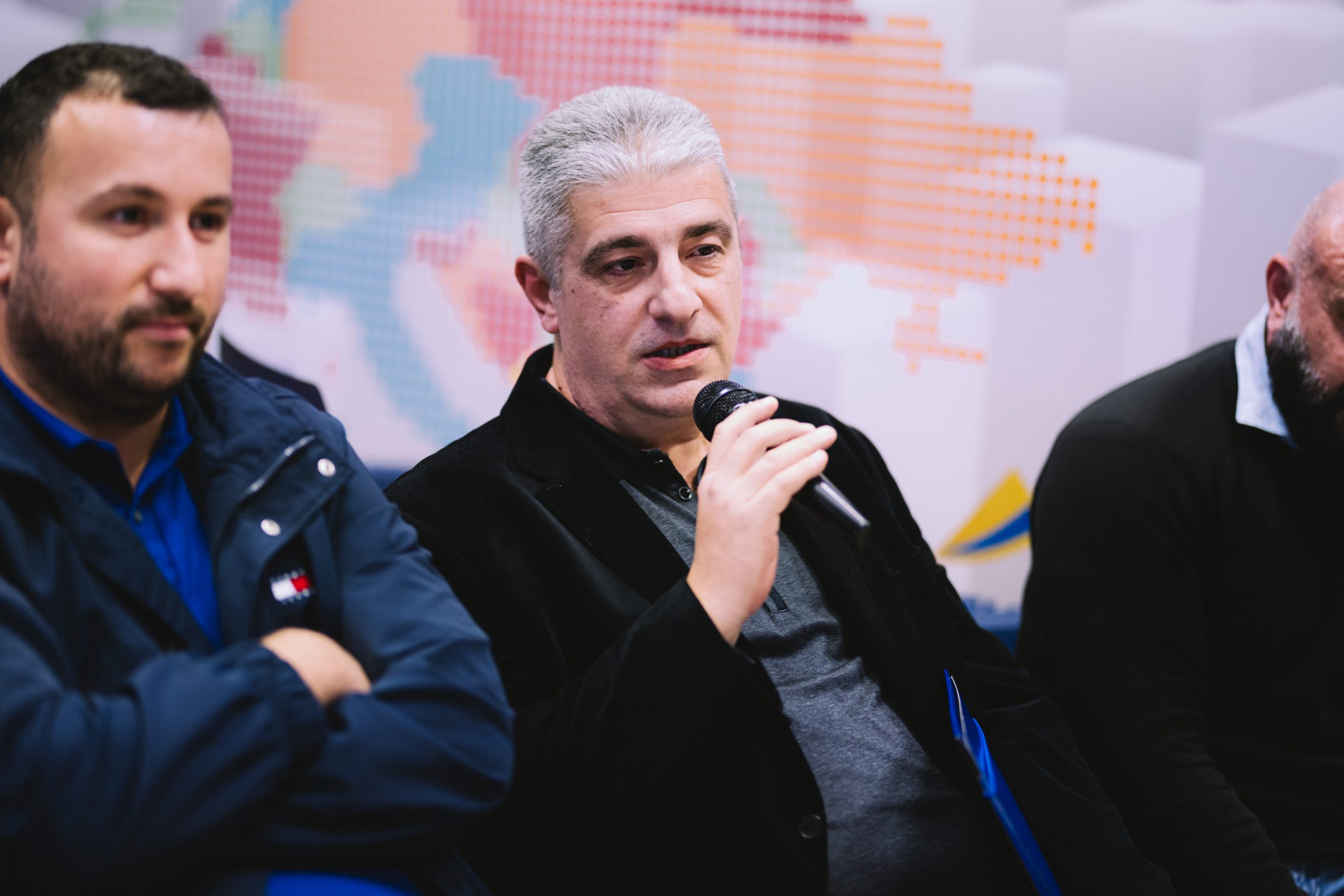

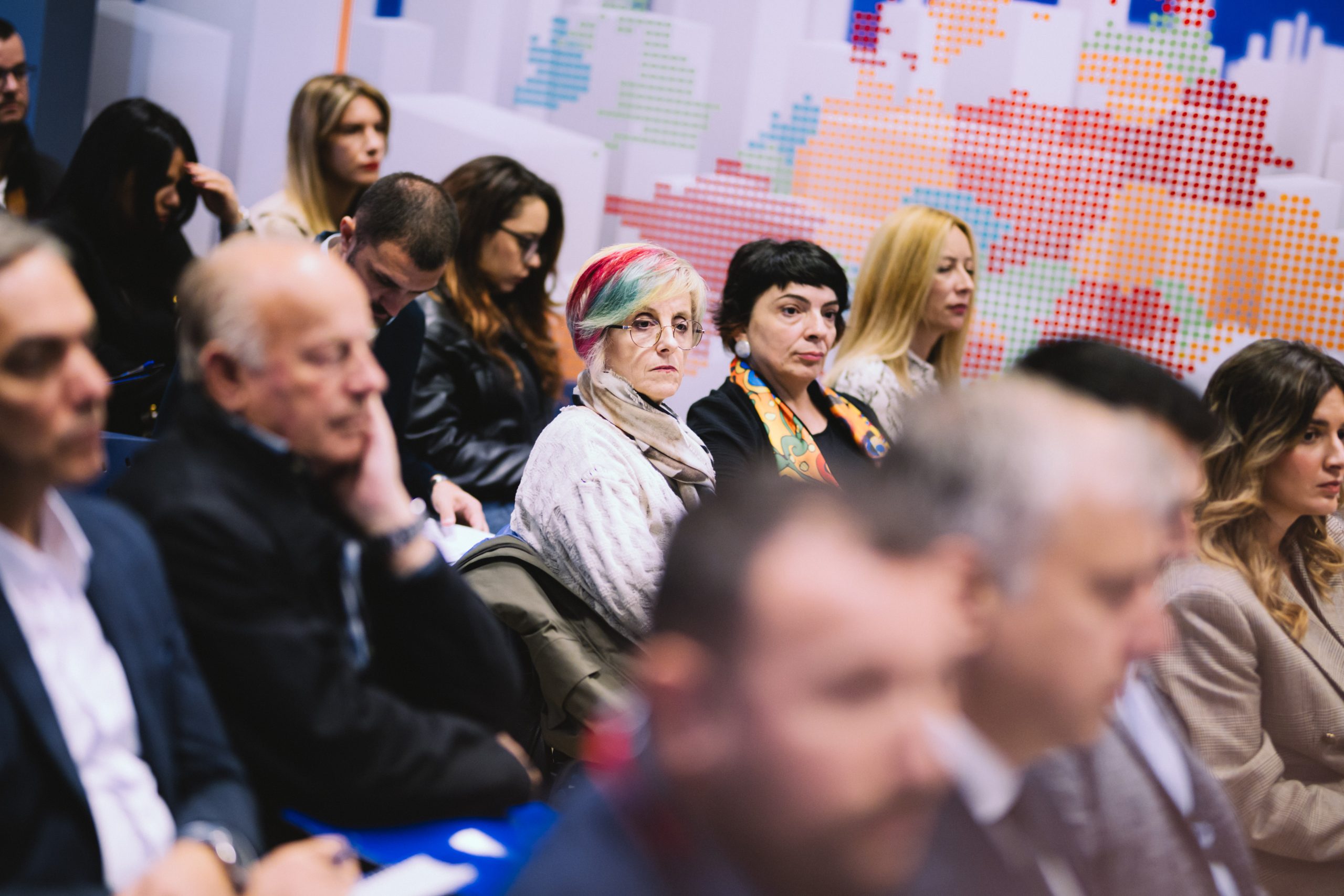
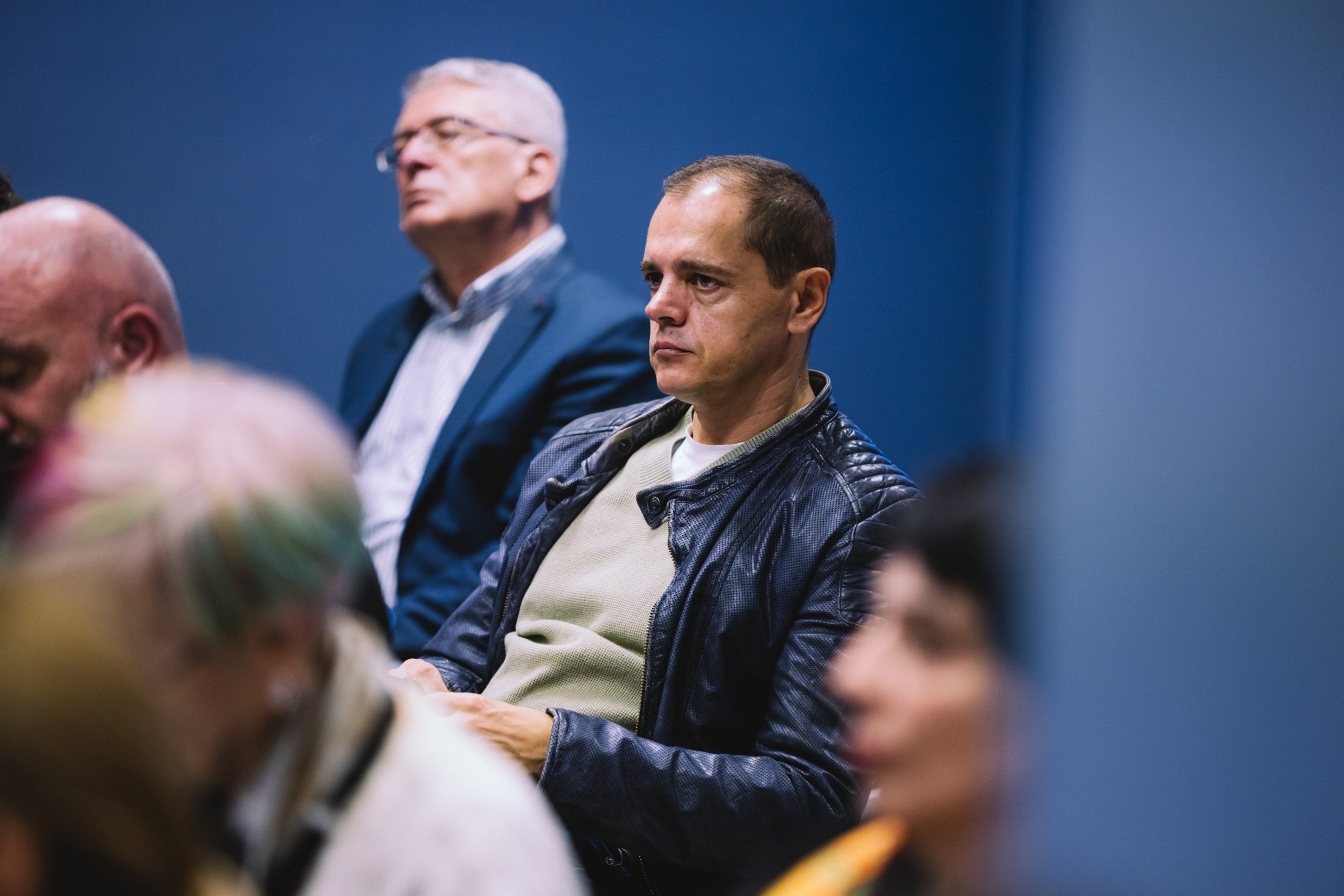
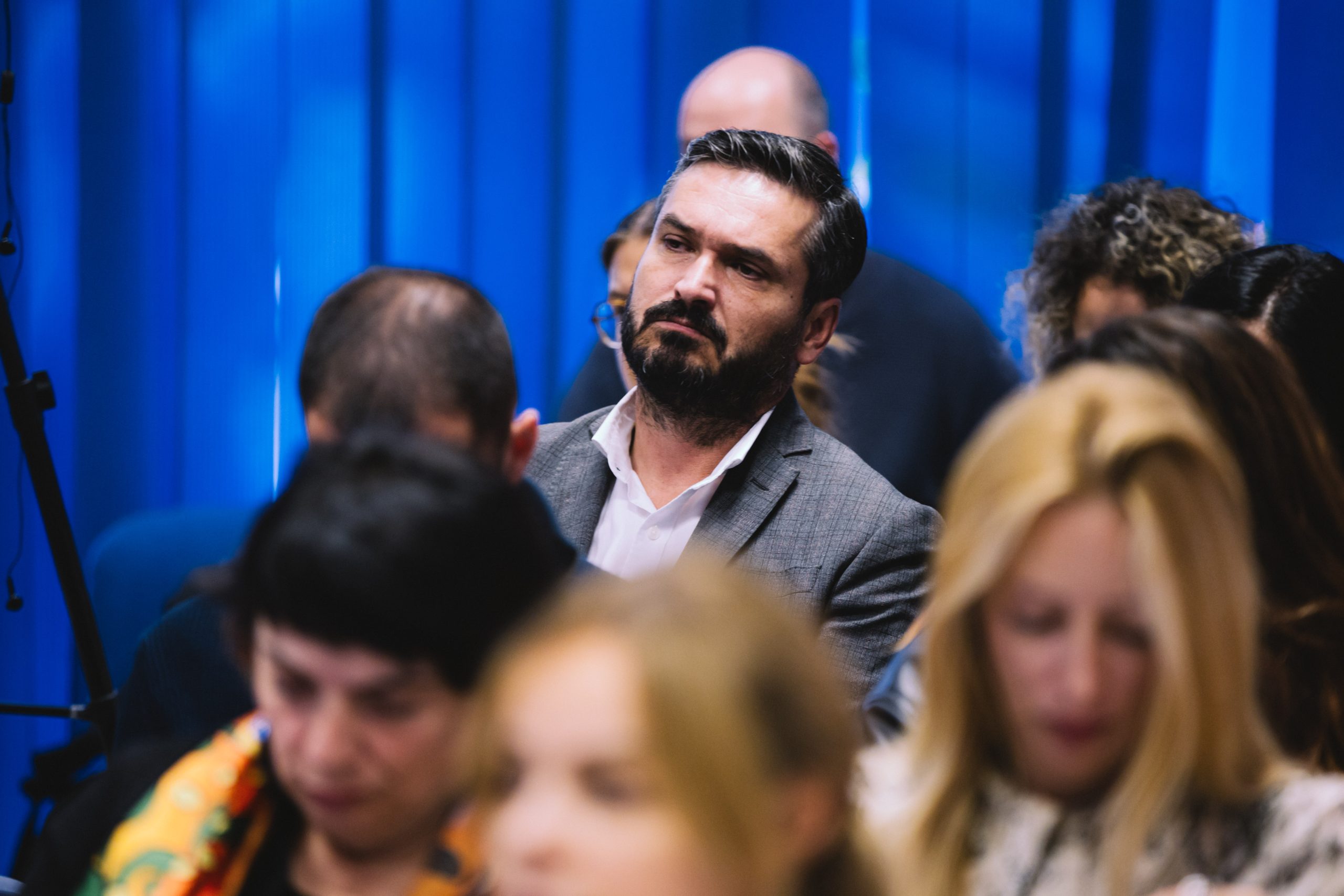
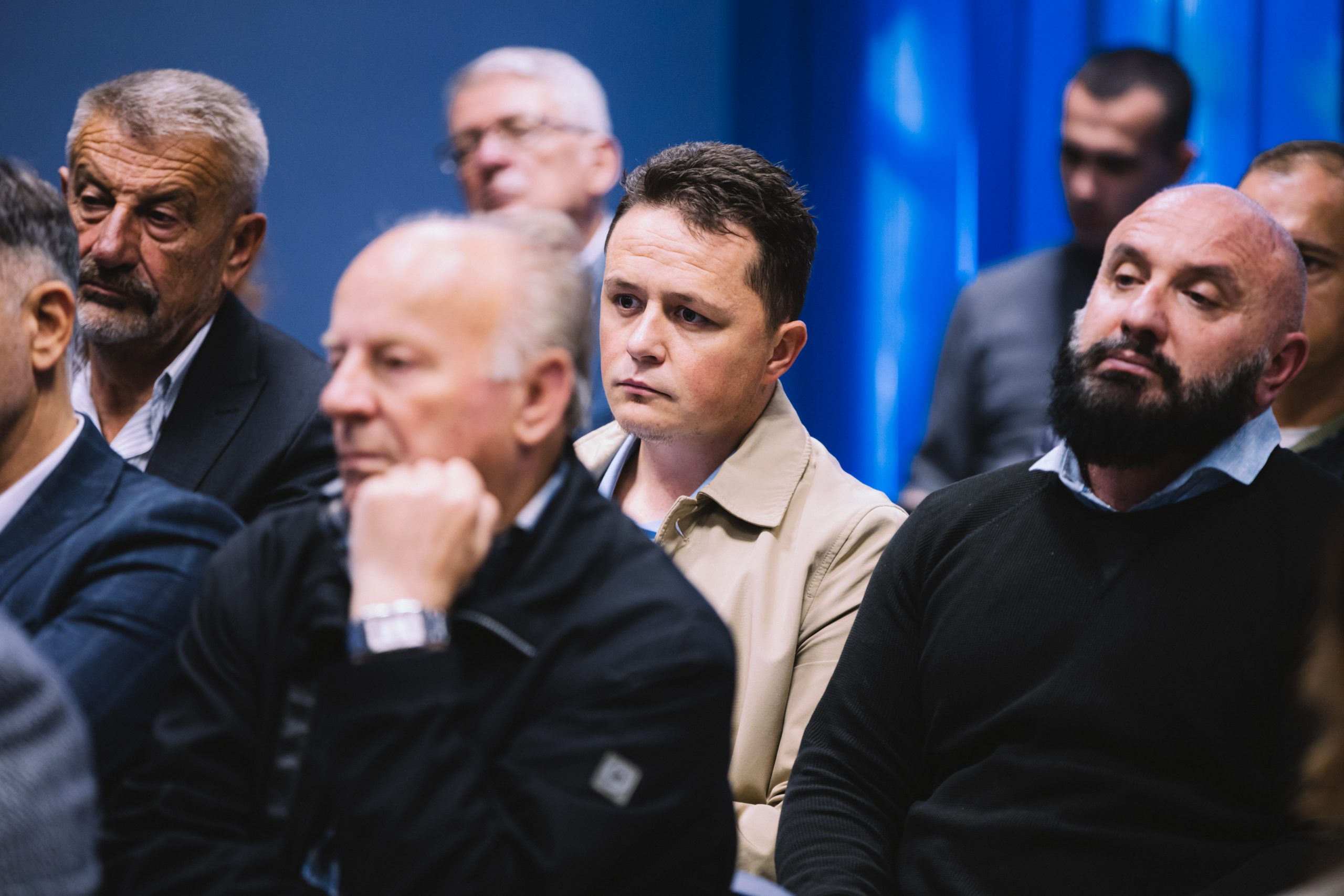
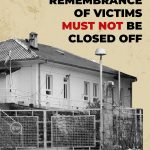


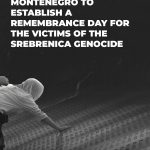

 English
English